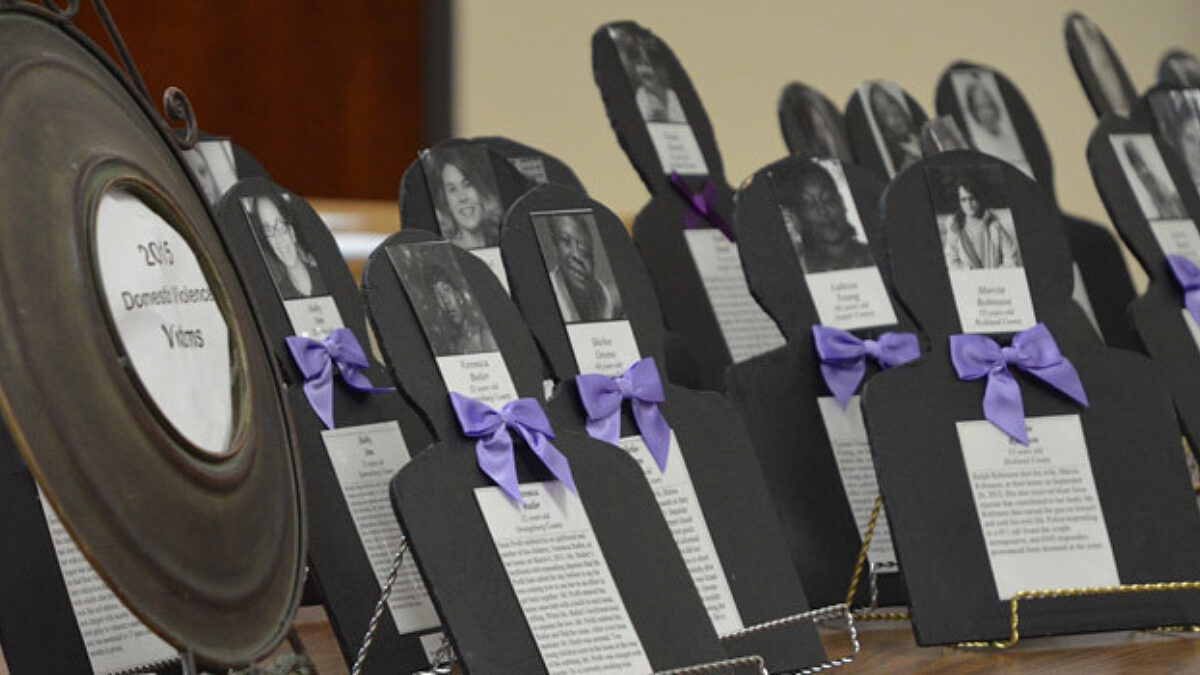
Silence can be just as painful as violence, domestic violence workshop shares
By Allison Trussell
COLUMBIA—One in three women and one in four men have been victims of some form of physical violence by an intimate partner within their lifetime. Further, South Carolina has ranked near or at No. 1 for the past 10 years for women murdered by men.
In response to these and other chilling facts, the South Carolina Conference and the conference Commission on the Status and Role of Women sponsored a Violence in Relationships workshop Aug. 5 at Francis Burns United Methodist Church.
Domestic violence is defined as the willful intimidation, physical assault, battery, sexual assault and/or other abusive behavior as part of a systematic pattern of power and control perpetrated by one intimate partner against another, according to the South Carolina Coalition Against Domestic Violence and Sexual Assault.
Violence can be physical or emotional, said Sheila Haney, convener of South Carolina COSROW, and its effects can last long after the bruises and bones heal.
Easter La Roche, director of Victims’ Services, Charleston County Sheriff’s Office, presented the program and shared personal stories with which she’s been involved.
“Victims and perpetrators often belong to the faith community,” she said, and yet few in the church will talk about it. Her home church, Wesley UMC, Johns Island, is very active and led by the Rev. Cathy Mitchell in its mission against domestic violence.
“Every year, my pastor preaches on domestic violence and invites a survivor to come and speak. Every April, the church hosts a march at the local high school track,” La Roche said. “You can do a lot of stuff without much overhead cost.”
She encouraged churches to educate themselves and to partner with organizations already in existence.
While South Carolina ranks very high each year in domestic violence, the state also leads the nation in domestic violence programs.
“We’ve got some of the best programs in the country,” she said, noting that at the local level, every county sheriff’s department has a Victims Services Program. Start there, she encouraged participants, and most importantly, listen to those around you.
“The most powerful thing you can tell a victim is, ‘I believe you.’”
That was echoed by Danielle Richardson, a survivor who grew up in Charleston and spoke to the group. Her mother was in a relationship with a much older man who controlled every aspect of the family—when they ate, what they ate, even going so far as to lock them in their rooms each night.
“He ran his house as his castle, and he was the king,” she said. “He was the ultimate controller.”
When she was 16 and her brothers were 14, 9 and 8, her stepfather went to a party where he was teased by his friends. As a result of the teasing, he began an argument with her mother.
“We woke up and heard a scream,” Richardson recalls. Her mother had been stabbed and died. In the span of three months, she and her brothers lost both parents and the grandmother who had taken them in.
“We were separated and sent to live with different relatives. There was no support group for kids at the time, and no one in the family spoke about it. We were written off as castaways, but our mother made sure we had education and manners.”
Richardson spoke of the circle of elders who surrounded her house that awful night and prayed as her stepfather was subdued and the EMTs waited to get to her mother. She remembers how those same elders and neighbors surrounded the children during the aftermath and funeral. But she and her brothers had to quit attending the church they grew up in and her mother worked for because they became known as the “children whose father killed their mother.” It was too hard, she said, to be only known for that and not for the other things that happened in their lives.
She spoke of the warm reception she’s received at Ebenezer AME church that she and her family now attend.
“My (current) church completely embraced me and my children,” she said. “I’m now a missionary for women in domestic violence shelters. I live with guilt and regrets, but the church has taught me to forgive.”
In 2013, Richardson became a victim’s advocate and has become a writer in part because of her mother’s encouragement. “As a child, I was chained and bound. Forgiveness gave me freedom. God is still here. Even now, when I struggle with my demons, God is there.”
She and La Roche told participants that survivors need to be heard and they need prayers. But they also need resources.
La Roche quote James and Phyllis Alsdurf, “As long as the church is quiet in a world which resonates with the cries of abused women, it is failing in its ministry of reconciliation.”
For more information on how your church can address violence and assist victims, contact Haney at [email protected]. La Roche can be reached at 843-202-1700 or [email protected].